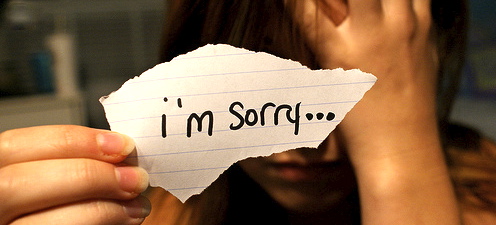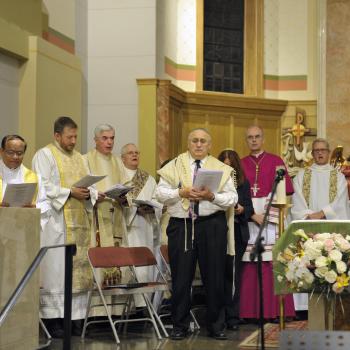It seems some of us are just hard-wired to be more contrite, according to one study:
A new study suggests that specific personality traits offer clues about whether a person is likely to offer a mea culpa.
Psychologist Andrew Howell and his colleagues at Grant MacEwan University in Edmonton devised a questionnaire to measure a person’s willingness to beg someone’s pardon. They asked participants to indicate their level of agreement with a series of statements, such as “My continued anger often gets in the way of me apologizing” or “If I think no one will know what I have done, I am likely not to apologize.” The researchers then used the answers to determine every participant’s “proclivity to apologize,” and they cross-referenced these scores with results from a variety of personality assessments.
From the beginning, Howell was confident that people with high marks for compassion and agreeability would be willing apologizers—and the study results confirmed his hypothesis. But the experiment also turned up some surprising traits of the unrepentant.
People with low self-esteem, for example, were less inclined to apologize, even though they probably feel bad after a conflict. Unlike people who experience guilt about a specific action and feel sorry for the person they have wronged, individuals who experience generalized shame may actually be feeling sorry for themselves.
In contrast, “people who are sure of themselves have the capacity to confess to wrongdoing and address it,” Howell suggests. But just the right amount of self-esteem is key. The study also found that narcissists—people who, in Howell’s words, “are very egocentric, with an overly grand view of themselves”—were reluctant to offer an apology.











